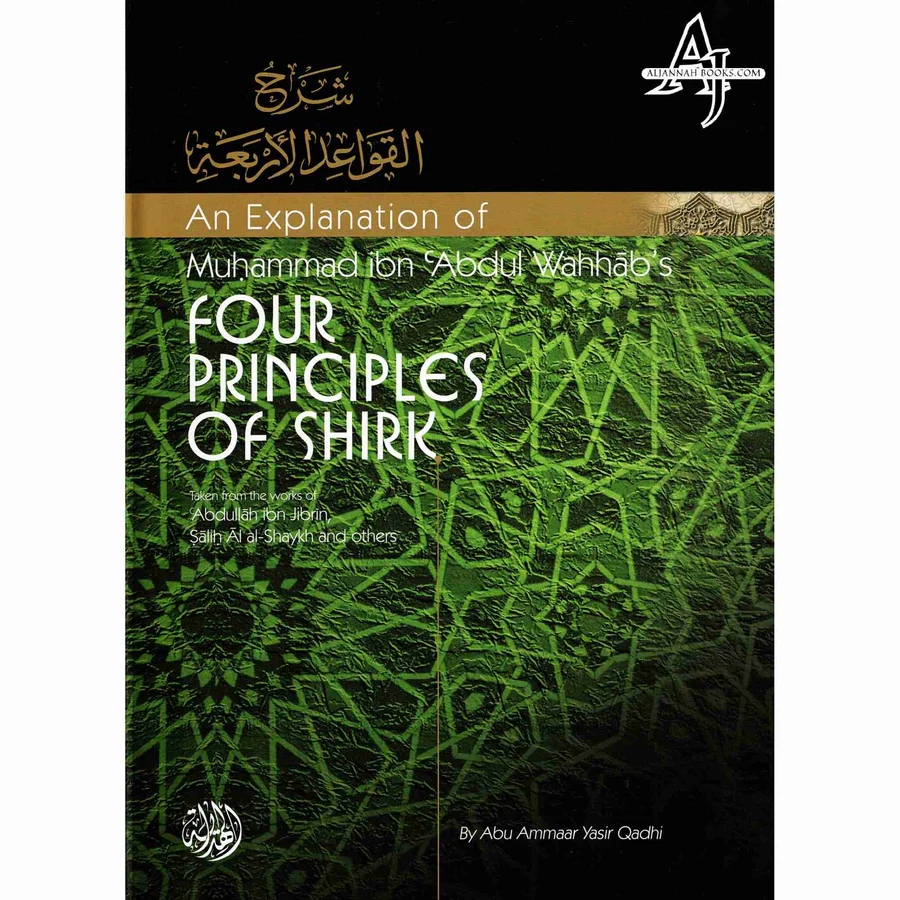An Explanation of Muhammad ibn Abd al Wahhabs The most abhorrent sin a Muslim can commit is called Shirk. Shirk is the act of linking partners with Allah. There are four principles of shirk as formulated by Muhammad ibn Abd al Wahhab. In the interpretation of this seminal work by Abu Ammar Yasir Qadhi, it brings it to life in greater depth and clarity, adding practical lessons for modern Muslims.
This blog talks about the four principles and their importance, the relevance they hold in this age, and how this book will assist readers in re-approaching Allah.
Who Was Muhammad ibn Abd al Wahhab?
Muhammad ibn Abd al Wahhab was a renowned Islamic scholar and reformer who spent his lifetime calling people back to the pure worship of Allah. His works are on Tawhid, or the oneness of Allah, and warning against Shirk in all its forms. His Four Principles of Shirk continues to be an important guide for Muslims who want to purify their faith and avoid polytheistic practices.
The Role of Yasir Qadhi in Explaining the Four Principles
Abu Ammar Yasir Qadhi, a renowned contemporary Islamic scholar, brings a fresh perspective to this classic work. He provides detailed explanations, historical context, and real-life applications, making the principles easier to understand and implement in today’s world.
Yasir Qadhi’s commentary is especially beneficial for readers seeking practical ways to safeguard their faith.
What Are the Four Principles of Shirk?
1. The Reality of Shirk
The first principle is that the concept of ascribing partners to Allah is not a new phenomenon. Even among the previous nations who believed in Allah as their Creator, it was present. It is when people direct acts of worship, such as prayer and supplication, to others besides Allah that is the problem.
2. Major and Minor Shirk
The second principle talks about the two types of Shirk:
Major Shirk: Acts that take someone out of the fold of Islam, such as worshiping idols.
Minor Shirk: Subtle forms like showing off in acts of worship.
Understanding this distinction is critical to avoiding all forms of Shirk.
3. Recognizing the Excuses for Shirk
The third principle is related to the excuse the people use in order to carry out Shirk, and that is: following their parents’ and grandparents’ beliefs. Yasir Qadhi said: “They may give excuses, ‘This was practiced by our parents and forefathers.’
4. The False Excuses
This principle puts into perspective the fallacy of using intermediaries or other entities to get closer to Allah. This principle reminds every believer that one can have a direct connection with Allah without needing intermediaries.
Why This Book Should Be on Your Reading List
Clearing Complex Thoughts
Shirk is quite a complex topic. By simplifying it into manageable ideas, Yasir Qadhi makes it easy even for readers who are introduced to the subject for the first time.
Practical Application
This book is not just an explanation of principles; it shows how they should be applied in life. In a world filled with distractions and cultural influences that may subtly lead to Shirk, this is particularly relevant.
Enhancing Tawhid
Reading this book will deepen readers’ understanding of Tawhid, which forms the basis of belief in Islam. It reminds one to be only for Allah in worship and intention.
How to Apply the Four Principles in Daily Life
Self-Reflection
Regularly examine your beliefs and practices to ensure they align with Tawhid. Ask yourself if your actions are free from any form of Shirk.
Educating Yourself and Others
Learning about Shirk is not just an individual responsibility. Share this knowledge with family and friends to protect them from falling into polytheistic practices.
Remaining Vigilant
Even minor acts of Shirk can creep into daily life. Remain vigilant and repent to Allah in case of any sort of deviation.
Contextualization by Yasir Qadhi
Yasir Qadhi contextualizes the principles for the challenges that Muslims are going through today. From the influence of secularism to cultural practices, he addresses issues that perhaps were not an issue during Ibn Abd al Wahhab’s time.
Language Made Simple
The use of the simple and lucid vocabulary makes it available to be read by almost everyone even those with no background or knowledge of Islamic studies.
Spiritual Enrichment Support
Qadhi is not merely writing an intellectual book but spiritual. Inspires one to strengthen relations with Allah and to top all priorities for faith.
Four Principles of Great Importance for Today’s World
Distracting World
In an age of consumerism also social media, distractions abound. The Four Principles remind us to focus on Allah alone, filtering out anything that might compromise our faith.
Debunking Misconceptions
Most Muslims are not aware of the ways in which Shirk is subtly presented through cultural traditions. This book is designed to educate readers on how to recognize also avoid these pitfalls.
Strengthening the Muslim Identity
A Muslim identity will be strengthened if the belief of Tawhid is understood also followed. This makes the believers strong enough to resist pressures from society, especially if it calls for the negation of faith.
Conclusion: Return to Pure Worship
More than a book, An Explanation of Muhammad ibn Abd al Wahhab’s (Four Principles of Shirk) by Abu Ammar Yasir Qadhi is a guide to spiritual clarity also purity. These principles can be studied in order to protect one’s faith, deepen one’s connection with Allah, also fulfill the primary purpose of one’s existence: worshiping Allah alone.
This book has to be read by anyone in quest of the purification of one’s beliefs, strengthening knowledge in Tawhid. This can serve as a reminder on vigilance against the fitna of Shirk also, of course, a life under Allah’s worship.
Read more: Meeting Muhammad By Omar Suleiman



